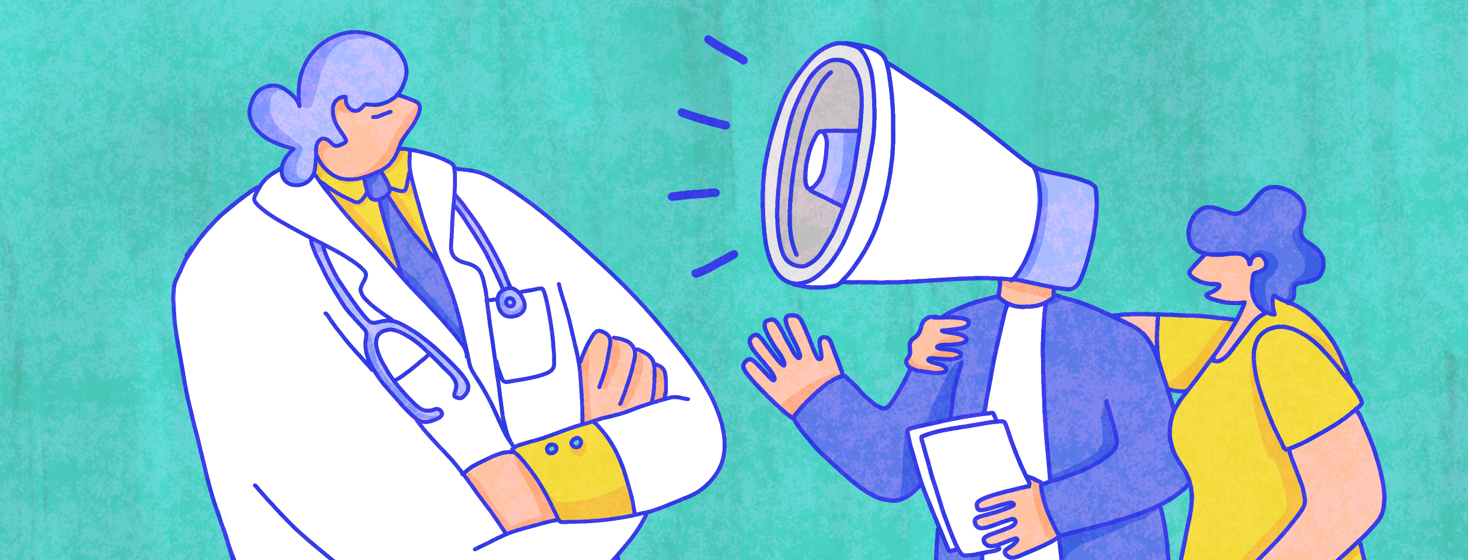Learning to Take Control of My Healthcare
For me, I don’t remember a time when I didn’t struggle with eczema. I was only two when my mom took me to the doctor, and I was diagnosed with eczema. As far back as I can remember, I have been dealing with the flare-ups, the medication, and everything that comes with managing my condition. As I child, I was often told I would grow out of it “eventually.” Well, at 31, I don’t think I will “grow out of” my eczema.
How did I learn to manage eczema on my own?
Like many others who receive their diagnosis during childhood, I grew up with my mom trying to help me manage my condition the best I could. There was a constant fluctuation between the areas of my body my eczema would affect, the severity, and what treatments would work, but this just became part of my normal life over time. As many young adults grow up and become more independent, they become responsible for the various areas of their lives compared to being children and relying on their parents. For me, part of this was beginning to manage my own health condition.
Featured Forum
View all responsesWhy didn't I think it was a serious condition?
Although I knew I had eczema and that it was something I had to manage, I somehow never really considered it a serious medical condition. Some are you are probably wondering why that would even matter. But the fact that I did not consider eczema a serious medical condition caused me to just stick with the same routine I always had. I would avoid my triggers, maintain treatment until I built up a tolerance, then use steroids to calm down the flare and switch to a different medication once that tolerance would build up. I wouldn’t say it was ideal, but somehow I got by.
When did I start questioning my treatment?
By the time I reached my mid 20’s, I had begun to start questioning this “status quo.” I was getting annoyed with the fact I didn’t feel like I was making much progress and that, if anything, my symptoms were starting to get even worse. I would casually mention this to my doctors and never got much of a response. I would be given a different medication, lotion, or cream, but that was about it. I often would leave appointments feeling dismissed. In my gut, I believed we could do better, and there were better options. I just didn’t know how to get there.
When did I start taking control of my healthcare?
After a change in insurance forced me to switch doctors in my late 20’s something finally clicked. I began to see that when I didn’t consider my own health struggles a priority, neither did they. I began to learn to become my own advocate, not to be afraid to speak up when I wasn’t happy with the treatment or didn’t think something was working. Once I began to do this, I began to feel like I was part of a team. I felt like we were working together to find what worked best for me, instead of just being handed treatment and rolling the dice to guess if it would work or not.
How has it worked for me?
When my primary doctor began to understand the severity of my eczema symptoms and the struggles I dealt with, she began to bring specialists onto our team. Over the past few years, we have all worked together to manage the various aspects of my health. It amazes me how much more progress I have seen by taking my own conditions more seriously and speaking up for myself. I am the only one who truly understands what I am going through, and without voicing that, my team of doctors and specialists cannot treat me to the best of their ability. We may not have it perfect, but feeling like I am being heard gives me hope for possible progress.

Join the conversation